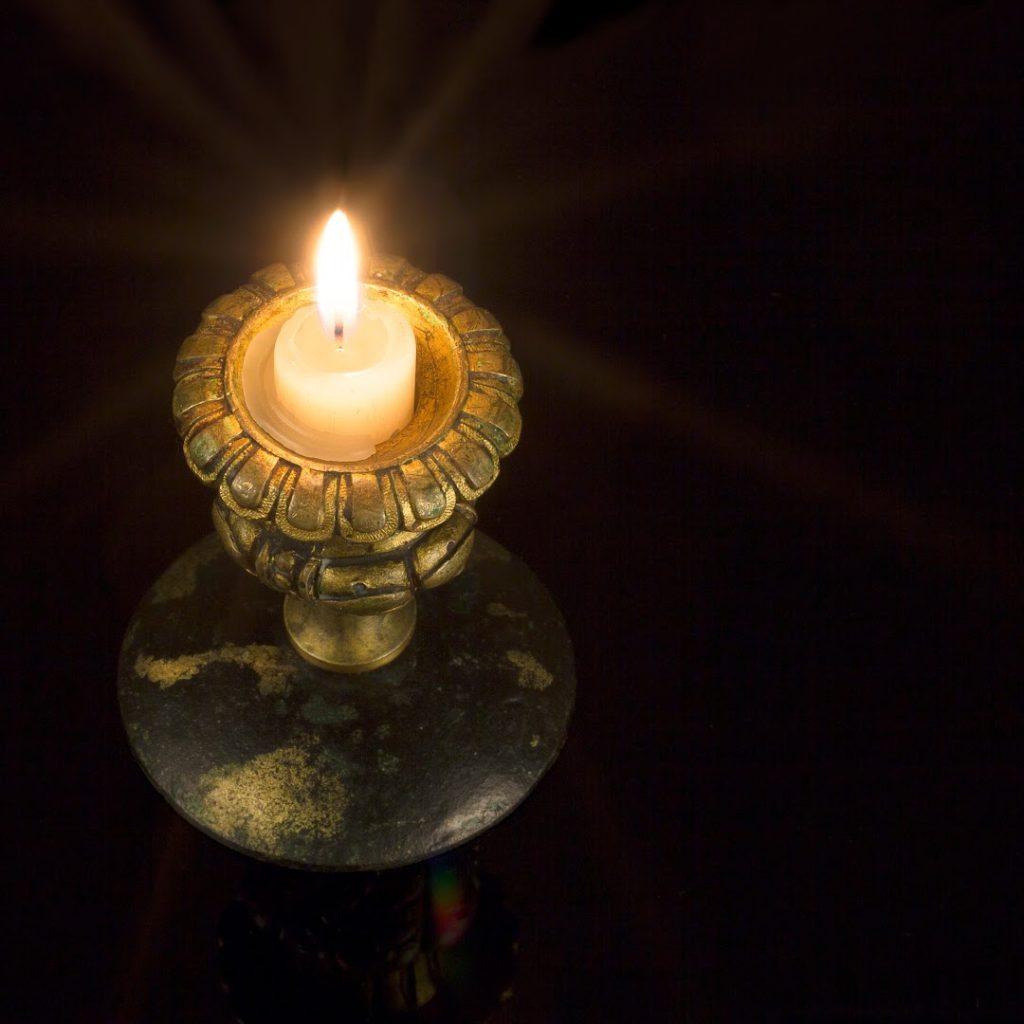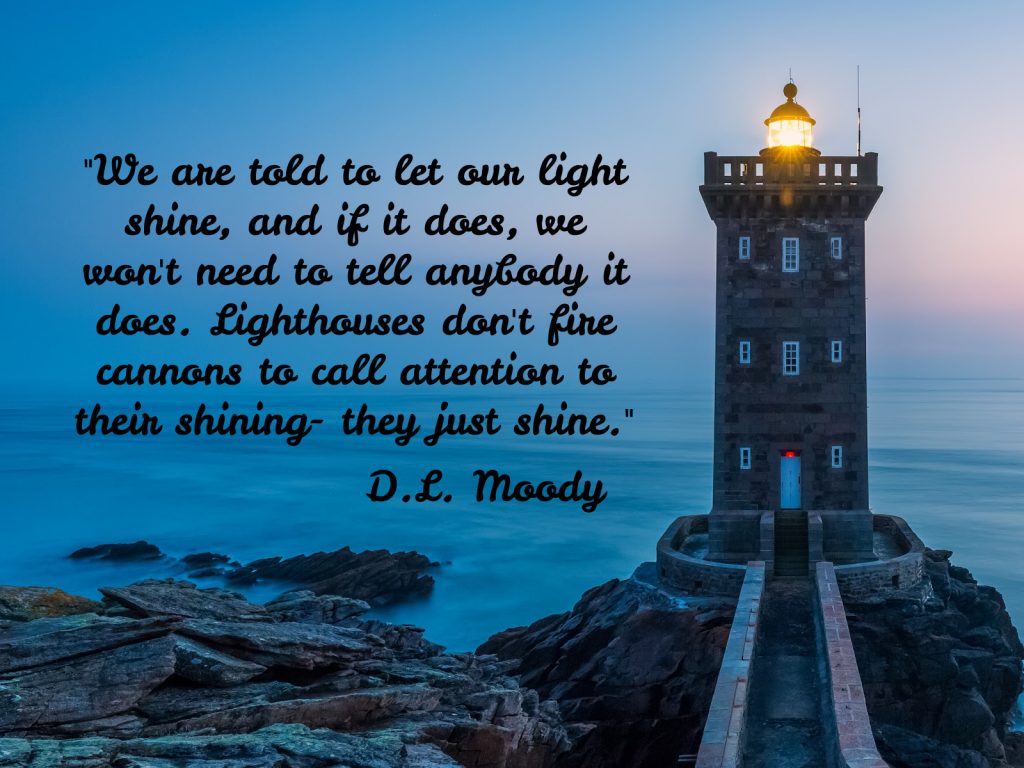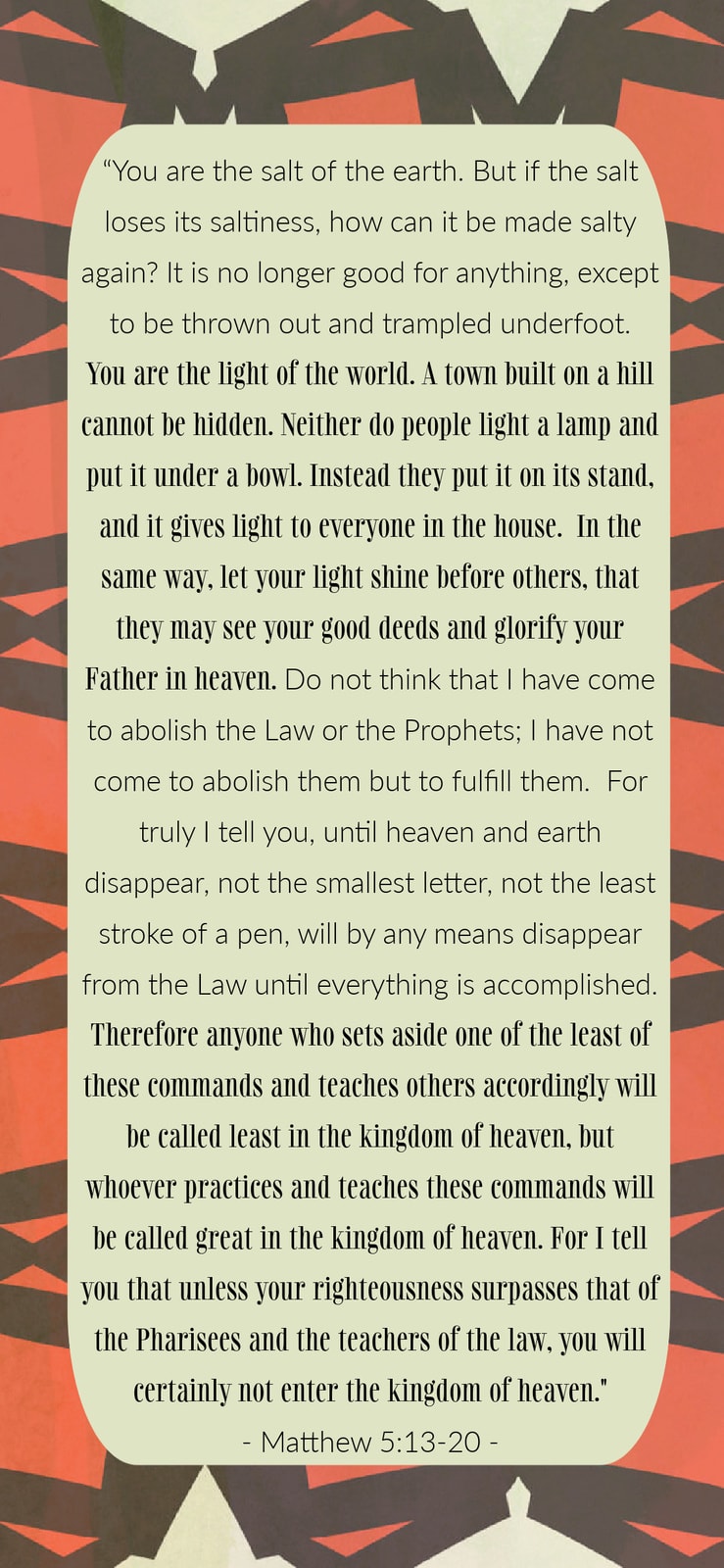The refrain of a song I grew up singing in Sunday School boldly declares, “This little light of mine, I’m gonna let it shine!”
Like many of the best songs, the lyrics of this one are grounded in truths lifted straight from Scripture: in one of the most popular verses from one of the most well-known passages in the Bible, Jesus reminds His followers that they are the light of the world and exhorts them (and us) to “let [our] light shine before others, that they may see [our] good deeds and glorify [our] Father in heaven.”
Jesus’ audience took this message to heart: lights blazing, they went out into the world and ignited an evangelistic movement. Their light spread like wildfire and led to the Gospel being proclaimed to the surrounding nations and ultimately to the ends of the earth.

This same light that resided within the earliest followers of Jesus exists in believers to this day. Unlike those first Christians, though, many of us have failed to display our lights for all to see. The light of God’s Truth remains tucked quietly in our hearts, hidden beneath the proverbial bowl where it can no longer illuminate the world around us.
Why have we allowed our lights to grow dim? There is no one right explanation, but the most obvious answer is that we are no longer desperately dependent on the Lord (and His light) for our daily existence. The lives of first century Christians were precarious ones. Illness, hardship, and death were daily realities that highlighted their felt need for a rescuer—within this life, and in the one to come. They were intimately aware of their own need for God and recognized this need in others. . . a recognition that compelled them to share their faith with abandon.
As life has gotten infinitely easier, we have lost sight of our need for a Savior. Our souls are no more secure than those of Jesus’ initial followers, but because we are able to control so many aspects of our physical lives, we forget that our spiritual lives are also in need of attention. We need the Lord just as much as people from every other time in history, but our generation has gotten so good at playing god that we have forgotten our dependence on the one TRUE God. We don’t feel this need for a Savior, and we don’t recognize it in those around us. . . so we keep our lights to ourselves, either out of laziness or simply because we don’t think our lights are necessary.
That is, until our world was hit by a global pandemic, and suddenly things started to seem a little darker. Events of the past couple of years have left many Christians questioning their faith; for others of us, it has solidified our beliefs as we now see how much we NEED these beliefs to be true. A fiery passion has been rekindled within us and we refuse to keep these inner blazes to ourselves. We are ready to heed Jesus’ call to let our lights shine before others.

But in our eagerness to cast light into darkness, missteps have been made. Some of us have thought that “being a light” to the world meant making Jesus seem more palatable to outsiders. A case can be made for meeting nonbelievers where they are, making Jesus “accessible to the masses.” My own seeker-friendly church follows this model and I have personally witnessed so much life change take place within a context of “a church that unuchurched people want to attend” (our church’s former mission statement).
Unfortunately this strategy has its limitations. It leads us to compromise our values and sugarcoat any truth that we worry may be too difficult for new believers to swallow. We are afraid to give off the appearance of being unloving or intolerant, so we tolerate issues and ideologies that have no place in God’s Kingdom. Our overeagerness to look good to outsiders also drives us to focus on superficial things (like churches having the right worship style or fog machines) when important issues go unaddressed.
When Christians mimic culture in our efforts to bring new believers into the Church Body, we often end up reflecting the world’s light source instead of the Lord’s. But that light runs out; the shine wears off; the appeal wanes. Non-Christians looking on can sense the inauthenticity of our messages that no longer fully capture what it means to love and follow Jesus. They perceive Christianity to have little to offer that they can’t find elsewhere (whether in political loyalties or feel-good faith systems or worldly pleasures). Christianity seems only slightly appealing, and slightly more like just another box to be checked off. It lacks substance and is easy to pass up.
This breaks my heart, because the full and complete light of Jesus Christ and the salvation He has on offer is so dazzling that if we were to let it shine in all of its glory it would become nearly impossible for questioners to resist its allure.
Our attempts at making Jesus look good have led us to offer up paltry appetizers when Jesus wants to provide an abundant feast. What would it look like to put this feast on display? It won’t be to everyone’s taste, but those who choose to come to the table will be treated to the most satisfying and delectable nourishment. And after tasting the goodness of Jesus’ feast, the world’s imitation fast food will quickly lose its allure. It’s a feast nobody would want to miss, and it begins with the invitation from a beckoning light.

In this year of learning to live wholeheartedly, I want the light of Jesus to shine within me. Not the light I think should shine, or the light I think others might want to see, but the blazing illuminations of Jesus in all of its roaring heat. This is an ambitious goal that I cannot accomplish on my own—because I am not my own light source! Jesus is. And to be a light for Him requires me to spend time each day gazing upon His brilliance so that my own light will be kept ablaze. Jesus, light me up from the inside. Give me the courage to display my light—the light of You and Your beauty, goodness, and truth—for all to see.